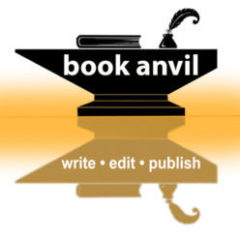Ultra cheap developmental editing: for August only, I’ll offer the first three (3) manuscripts of up to 110,000 words an extremely cut-price Structure Read.* Cost will be $350, a saving of $250 on the regular fee.
Despite the low cost, this will be a thorough and creatively helpful edit. Past writers have come away from a Structure Read with stronger ideas, firmer sense of direction, richer technical know-how, and renewed enthusiasm. You will receive tailored, dedicated and comprehensive feedback from the vantage of a professional creative editor.
How to apply:
Use the ‘contact’ form to send me a message of interest. For the first three applicants I will then supply an email address and you can send me an email with the following:
1. In the subject line: ‘BookAnvil Special Offer’.
2. In the body of the email, your full name, manuscript title, length (wordcount), genre, and whatever stage you feel you’re at with writing (e.g. first draft, late draft). You might also like to jot down any particular areas you’d like me to focus on, if any.
3. Using copy/paste, please insert the first 300 words of your manuscript into the email as text. (This process is simply so I can make sure you’re a genuine writer and not a scammer or bot.)
4. Await return contact, and I’ll let you know if you’ve scored a cut-price editing place. We can chat then about any special considerations, and I’ll let you know a turnaround time (usually about a week).
By the way, sending your email sample doesn’t necessarily commit you to going through with being edited. You’re welcome to ask anything you like and get a feel for my editing before going ahead.
* Conditions:
1. Only the first three (3) manuscripts to meet basic readability criteria will be accepted for the cut price Structure Read. I reserve the right to return any work uncommented if I feel the number or degree of errors make it unsuitable for commentary at this point.
2. If you wish to continue working on your manuscript up until the editing date arrives, please do. However you must submit when scheduled, or you’ll lose your cut-price place.

